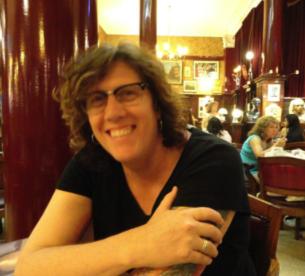A recognizable leader in the field of trans studies, Susan Stryker embodies the multifaceted and progressive character of a discipline that is at once relatively young but discernibly necessary. Among her various pursuits, Stryker has co-edited the groundbreaking Transgender Studies Reader, directed the Emmy-winning documentary Screaming Queens: The Riot at Compton’s Cafeteria, and served as the director of the GLBT Historical Society of San Francisco.
Currently the director of the LGBT Studies Institute at the University of Arizona, Stryker will be at the University of Toronto on Jan 31 to participate in a roundtable discussion titled Trans Studies: State of the Field, and to present her research, Cross Dressing for Empire: Embodying White Masculinity Through Performance in San Francisco’s Bohemian Club, 1870s-1920s. In anticipation of the event, Stryker spoke to Xtra about trans issues in academia and beyond.
Xtra: Can, or should, queer/trans studies occupy space in the academy the same way that traditional humanities and social science disciplines do?
Susan Stryker: Because there’s homophobia in the world, sometimes it can be difficult to negotiate the academic environment when you’re out and queer, the same way it can be hard to negotiate any workplace, or public space in general. It’s not always a cakewalk. But there is a real recognition that understanding sexuality and sexual diversity is an important part of how you train students to be engaged, thoughtful, participatory members of society. There is not a lot of intellectual debate about whether or not it’s valuable to study LGBT and queer issues in the academy. Even among people who don’t quite get it, it’s recognized as being a legitimate set of questions that has some important things to say to everybody.
Is there such a thing as a uniquely queer approach to analysis, research and teaching?
I do think so. For one thing, I always come out when I teach. I use that to frame questions for my students. I’ll say look, because I’ve experienced certain things in life, it gives me a certain relationship to questions you might want to ask, like trans politics, history of medicine, or the history of legal reform of identity. As a trans person who has worked a lot in LGBT contexts, part of my practice comes from having embodied knowledges, from having a body in the world in a particular way. You learn, through how you live your body in the world, how power operates and how institutions reproduce oppressive forms of normativity.
What is the state of trans studies as a field?
The intellectual origins of trans studies come out of the same moments that produced queer studies, but it’s been more marginalized, and it’s been a long process of building up a more coherent and sophisticated body of thought on trans issues. But over the last decade, we’ve seen a lot of consolidation in the field: there are lots of conferences, there are more courses that are being taught, there are readers, anthologies, special issues of journals. You can look at the process of field formation taking off in a really accelerating way.
See, it used to be for gay and lesbian people that there would be, say, a talk show on TV and they’d ask, “What do you think of homosexuality, clinical psychologist so and so?” and it wouldn’t exactly be gay and lesbian people who were the authorities on their own experience. That really shifted in the ’70s; like, if you want to know about gayness, ask a gay person. That has not been the case for transgender people until fairly recently. It’s that shift to trans people becoming the authorities in their own lives that has been the significant shift in the last 20 years. It’s a field that has a role in it for people who are the objects of knowledge to also be the subjects of knowledge.
Xtra recently decided to accommodate “they” as a gender-neutral pronoun. What’s the role of the media in education and exposure around trans issues?
I think you touched on an important thing there with pronoun usage. Pronouns are some of the parts of language that are most resistant to change. We come up with a hundred new nouns a day, but the pronouns are part of a relatively stable linguistic structure. So how do you deal with those people for whom that linguistic structure doesn’t match their material reality? For language to continue to have an accurate descriptive function of the world that it’s trying to model and represent, change has to happen, and there need to be opinion leaders who model that. Media and queer media can play a really important role in starting to use language differently, and editorial board meetings could be places where certain kinds of social and political struggles work themselves out.
The Deets:
Trans Studies: State of the Field Roundtable
Tues, Jan 31, 10am
Vivian and David Campbell Conference Facility
Munk School of Global Affairs, 1 Devonshire Place
Cross-Dressing for Empire: Embodying White Masculinity Through Performance in San Francisco’s Bohemian Club, 1870s-1920s
Tues, Jan 31, 4pm
Room 208N, North House
Munk School of Global Affairs, 1 Devonshire Place

 Why you can trust Xtra
Why you can trust Xtra


